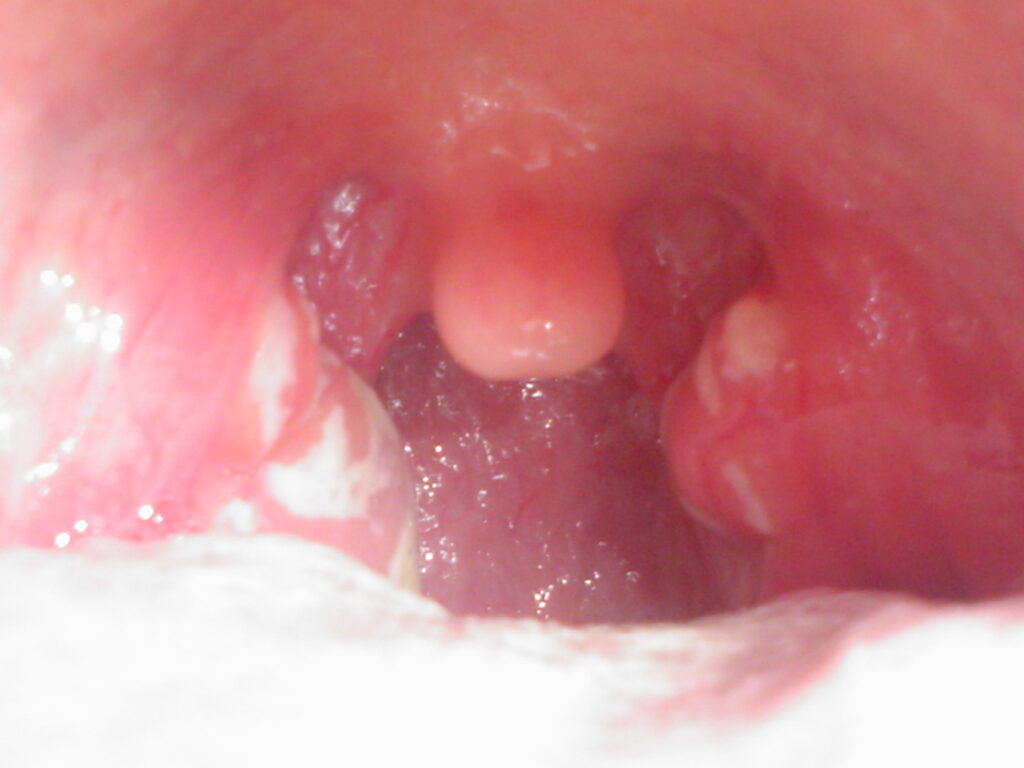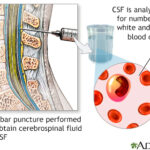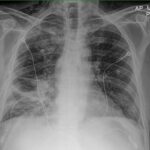Staphylococcal pharyngitis is an uncommon but clinically significant bacterial infection of the oropharynx caused predominantly by Staphylococcus aureus. Although Group A Streptococcus remains the leading cause of bacterial pharyngitis, staphylococcal etiology, especially methicillin-resistant Staphylococcus aureus (MRSA), is increasingly recognized, particularly in healthcare-associated or immunocompromised populations.

Understanding the Etiology of Staphylococcal Pharyngitis
Key Pathogens
- Methicillin-sensitive Staphylococcus aureus (MSSA): Common in community-acquired infections.
- Methicillin-resistant Staphylococcus aureus (MRSA): Notable in hospital settings and high-risk groups.
- Coagulase-negative Staphylococci (CoNS): Rarely implicated, typically in immunosuppressed individuals.
Transmission Mechanisms
- Direct contact with infected secretions
- Autoinoculation from nasal or skin colonization
- Nosocomial exposure through shared equipment or poor hygiene
Clinical Presentation and Symptoms of Staph Throat Infection
The symptoms of staphylococcal pharyngitis closely resemble other bacterial causes, making accurate diagnosis challenging without laboratory confirmation.
Common Symptoms
- Sore throat with sudden onset
- Dysphagia or pain while swallowing
- Fever and chills
- Erythematous pharynx
- Exudates on tonsils or posterior pharynx
- Tender cervical lymphadenopathy
- Absence of cough (helps distinguish from viral causes)
In MRSA-related cases, systemic signs such as malaise, skin lesions, or concurrent infections may be present.
Risk Factors and Populations at Higher Risk
Certain groups are more susceptible to staphylococcal pharyngeal colonization and infection:
- Healthcare workers
- Immunocompromised individuals (HIV, cancer, transplant recipients)
- Patients with indwelling medical devices
- Children in crowded settings
- Individuals with chronic sinusitis or dermatitis
Poor oral hygiene and frequent antibiotic use may also predispose to resistant strain colonization.
Diagnostic Evaluation and Laboratory Confirmation
Throat Swab and Culture
- Primary test: Culture on blood agar or selective media
- Differentiation: Coagulase test to confirm S. aureus
- Sensitivity Testing: Determines methicillin resistance
Additional Tests
- Rapid antigen detection tests (RADTs): Typically used for Group A Strep; limited utility in staph pharyngitis
- PCR assays: Useful for rapid MRSA detection
- Complete blood count (CBC): May show leukocytosis in systemic infection
Accurate differentiation from streptococcal or viral pharyngitis is essential for appropriate antimicrobial management.
Therapeutic Approach to Staphylococcal Pharyngitis
Empirical and Targeted Antibiotic Therapy
Treatment should begin based on suspected risk factors and refined according to culture and sensitivity results.
- MSSA Infections:
- Dicloxacillin or Cephalexin
- Clindamycin for penicillin-allergic patients
- MRSA Infections:
- Clindamycin
- Trimethoprim-sulfamethoxazole (TMP-SMX)
- Linezolid or Doxycycline in resistant cases
Treatment Duration
- Typically 7 to 10 days depending on severity
- Ensure full course adherence to prevent recurrence and resistance
Supportive Care
- Analgesics and antipyretics: For pain and fever
- Warm saline gargles
- Hydration and rest
Complications and Prognosis
If left untreated or inadequately managed, staphylococcal pharyngitis can lead to:
- Peritonsillar abscess
- Retropharyngeal abscess
- Bacteremia
- Lemierre’s syndrome (rare but life-threatening)
- Endocarditis in patients with predisposing heart conditions
Prompt diagnosis and early intervention significantly reduce the risk of systemic dissemination.
Preventive Measures and Infection Control
Personal Hygiene
- Regular handwashing
- Avoid sharing eating utensils or oral items
- Covering mouth while coughing or sneezing
Environmental Control
- Disinfection of communal surfaces
- Isolation precautions in healthcare settings with known MRSA cases
Nasal Decolonization
- Mupirocin nasal ointment in recurrent carriers
- Consider chlorhexidine washes in high-risk individuals
Public health education on antibiotic stewardship is crucial to curbing resistant strain development.
Frequently Asked Questions
Can staphylococcal pharyngitis be mistaken for strep throat?
Yes. The clinical features often overlap, making laboratory culture essential for accurate diagnosis and appropriate antibiotic selection.
Is staph throat contagious?
Yes. Staphylococcus aureus can be transmitted via direct contact or respiratory droplets. Proper hygiene is key to limiting its spread.
Can staph pharyngitis recur?
Recurrence is possible, especially in nasal carriers or individuals with repeated exposure. Decolonization strategies and treating close contacts may be necessary.
Is MRSA pharyngitis more severe?
MRSA infections tend to be more resistant to standard antibiotics and can lead to invasive complications if not promptly treated.
Staphylococcal pharyngitis, while rare compared to streptococcal or viral causes, poses a serious health risk, particularly in vulnerable populations. Differentiating it through culture and sensitivity testing is vital to guide targeted therapy. Vigilant prevention practices, early recognition, and the appropriate use of antibiotics remain essential for successful outcomes and reduction of antibiotic resistance in community and hospital settings.

